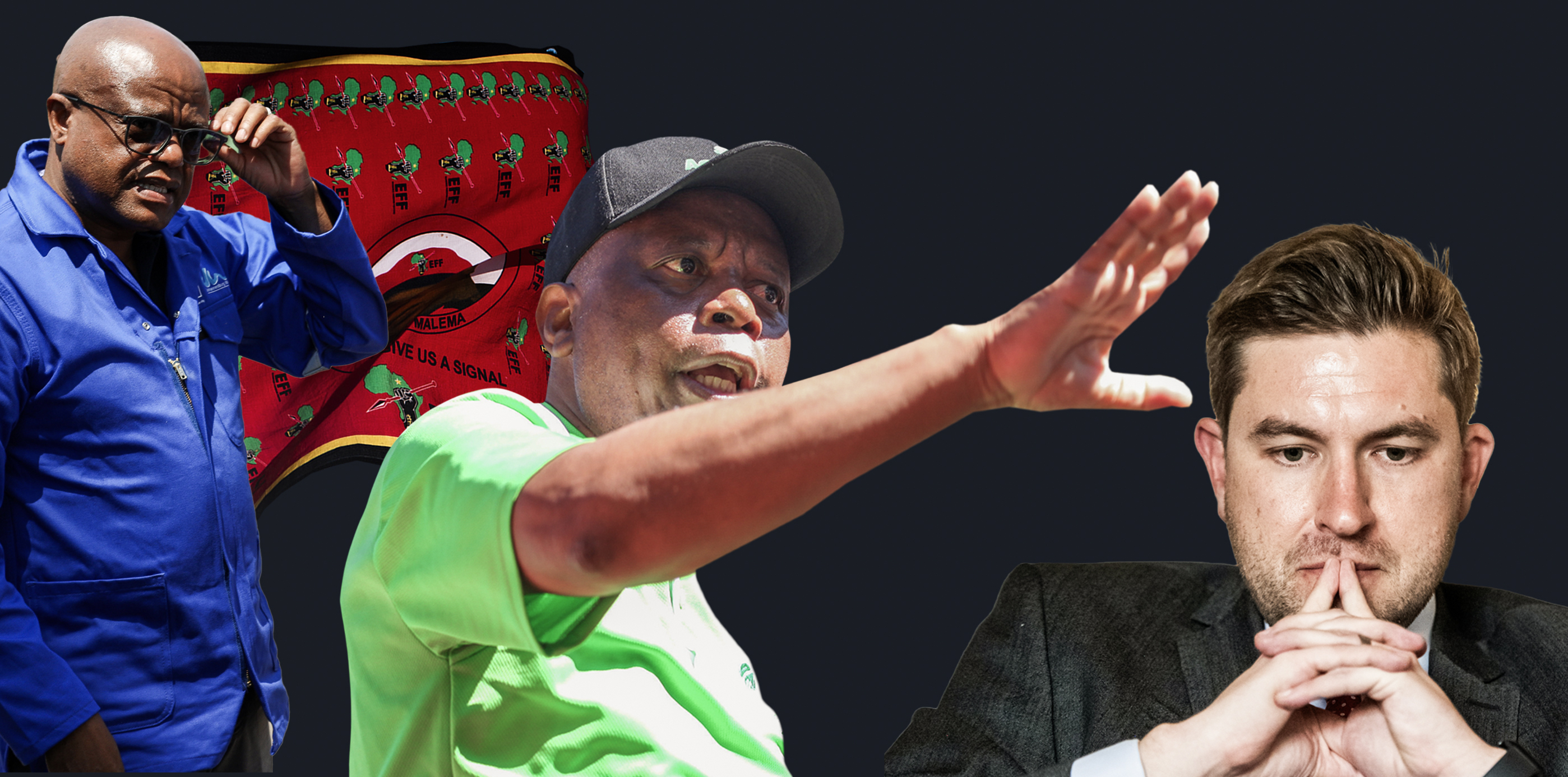The decision by ActionSA to no longer work with the DA in Tshwane, but instead to cooperate with the ANC, presents the national ANC leadership with a major decision — either to force the DA out of power in Tshwane or to solidify their national coalition with the DA by working with it in the capital.
It is, however, a little more complicated than that.
To regain control in Tshwane, the ANC would need to work with the EFF in addition to ActionSA. This poses a key question for the national ANC: Can it approve working at the municipal level with a party it could not agree with at the national level?
The EFF has been an unreliable partner for the ANC in Gauteng metros.
In Ekurhuleni, EFF and ANC councillors pushed and shoved each other. In Joburg, the EFF refused to vote in favour of a motion to approve a loan for the city, in retaliation for the ANC removing the EFF’s Gauteng leader, Nkululeko Dunga, as MMC for finance in Ekurhuleni.
The fact that the EFF and the ANC were unable to reach agreement in negotiations about the national coalition reveals the deep tension between them.
In Nelson Mandela Bay, a similar question is presenting itself (without the role of ActionSA). The ANC and the DA each have 48 seats on the council and the ANC has previously supported a mayor from a much smaller party.
Now it seems that a decision will have to be made there, too.
This raises the spectre of another problem the ANC has not faced before.
One of the major reasons the national coalition has worked (so far) is that ANC MPs have been disciplined and voted according to their instructions to support a DA Deputy Speaker in the National Assembly and an IFP Deputy Speaker in the National Council of Provinces.
Rebellious councillors
It is not certain that ANC councillors would be capable of such orderliness.
There is plenty of precedent, going back to Tlokwe in 2013, that reveals how often ANC councillors have rebelled against their national leadership. Famously, Tlokwe councillors only voted for the candidate they were instructed to after each councillor had an individual meeting with the then ANC secretary-general, Gwede Mantashe, and the then president, Jacob Zuma. Such a personal approach would be unlikely to work now.
In Mangaung last year, ANC councillors voted for a DA candidate as Speaker — not as part of a coalition but in stark defiance of their instructions.
In Ditsobotla in North West, ANC structures have almost routinely ignored the instructions of the national ANC (leading to the town having two people claiming the mayorship).
To add to the problems of the national ANC leadership, councillors who refuse to obey their instructions could argue they were doing so out of principle and did not agree with the coalition with the DA. Some might well say they represented wards where voters opposed any deal with the DA.
Hence, a major factor in the national ANC’s decision about coalitions in municipalities is whether it can enforce its will on its municipal politicians. No matter which way it goes, the result may be chaos.
If the party decides to work with the EFF and ActionSA, and spurns the DA, then the ANC coalitions at the municipal level will differ from those at the national level.
If it decides to work with the DA and its councillors rebel against that decision, it will show that the ANC’s national leadership has lost control of parts of the party.
In reality, the ANC’s national leadership lost control of some of its structures a long time ago. That the party has arrived at this situation reveals just how weak the national ANC’s control over these structures is.
Eye on the future
That is not nearly the end of the problem. The ANC’s national leadership must also consider whether working or refusing to work with other parties will help or hinder those parties in the 2026 municipal elections.
This gives rise to another conundrum: whether the national ANC believes the national coalition will be a vote-winner or a vote-loser for it in those polls and the elections in 2029.
This could lead to difficult soul-searching by the party’s leaders.
What is clear though is that if the ANC were to reject ActionSA, Herman Mashaba would be left hanging in the wind. He will have broken a consistent promise to never work with the ANC, only to then be rejected by it and still out of power.
In Tshwane, his party will presumably have lost the position of deputy mayor. This could lead to infighting at ActionSA, which has yet to hold a leadership conference.
The ANC has to make decisions that have the potential to be momentous — which is why the decisions might take a long time to finally be made. DM





